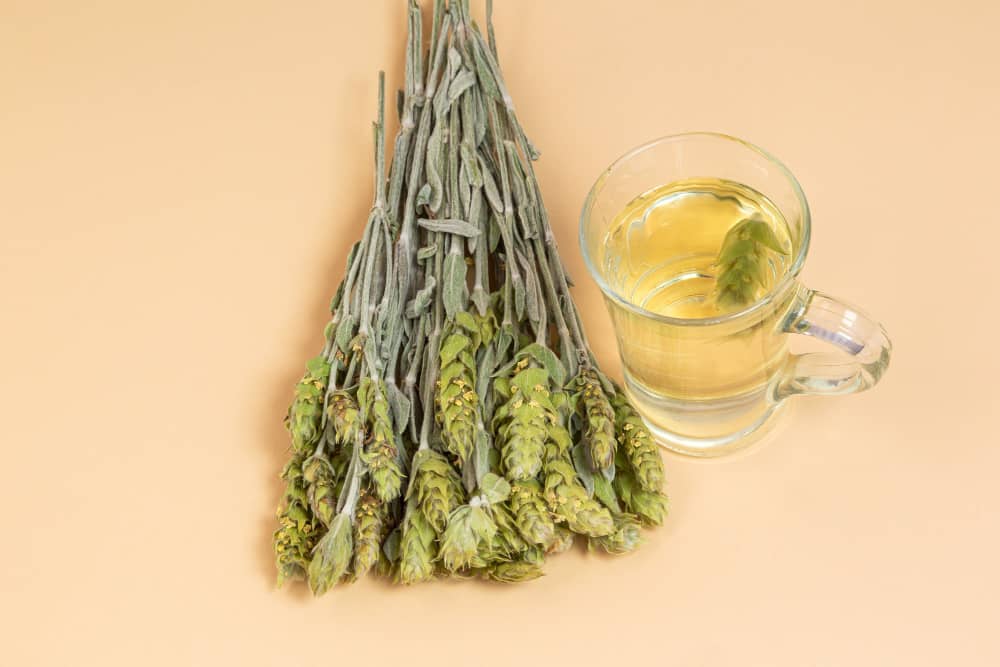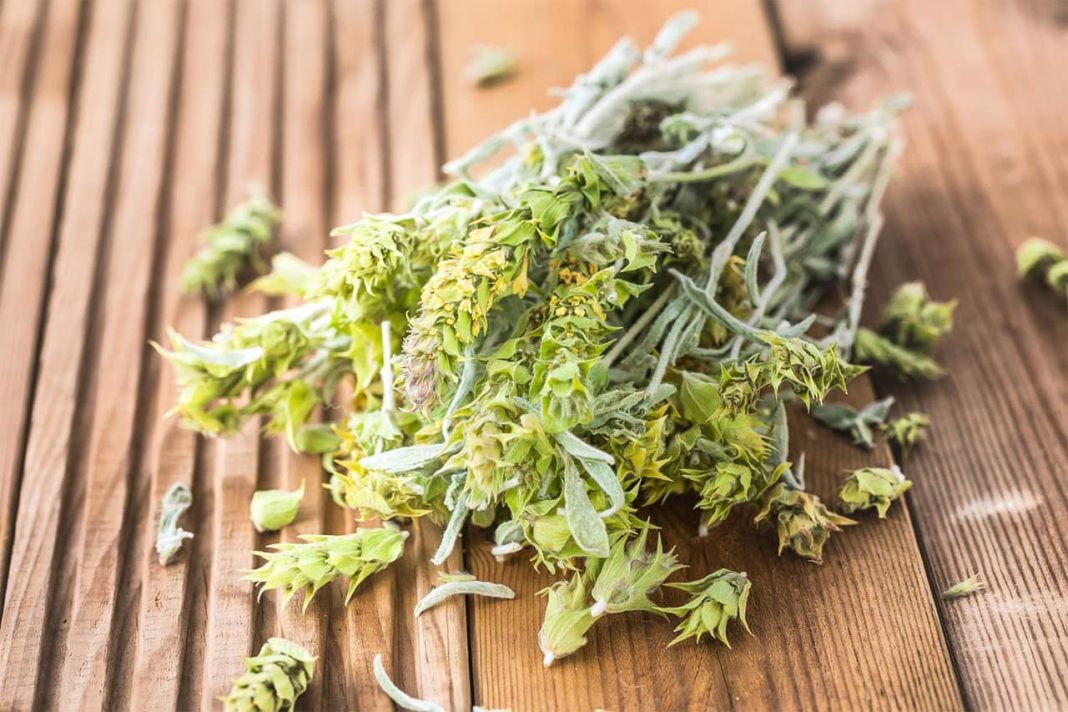Some of these popular Bulgarian herbs have been used for centuries in traditional Bulgarian medicine to treat various conditions. Bulgaria is well known for its diverse flora and fauna. The country has various herbs that can grow in the wild or be cultivated in gardens. Here are some popular Bulgarian herbs and their health benefits.
Bulgaria is a country with a rich tradition of herbal medicine. For centuries, Bulgarian peasants have used herbs to treat various ailments. Today, some of the most popular Bulgarian herbs treat colds and flu, stomach problems, and skin conditions.
“There is something in the nature of tea that leads us into a world of quiet contemplation of life.”
Lin Yutang
Bulgaria is a country located in the southeastern part of Europe. It borders Romania to the north, Serbia to the west, Macedonia to the south, and Greece to the east. The Black Sea lies to the east of Bulgaria. The country has a rich history and culture. Bulgaria is known for its traditional folk music and dance.
Bulgarians use a variety of herbs for medicinal purposes.
Herbal teas have been around for centuries and are widely consumed for their delicious taste and health benefits. Bulgaria is home to many herbs used to make teas, popular among locals and tourists. This article will look at some of the most popular Bulgarian herbs and their health benefits.
Mursalski tea is a herbal tea made using a blend of different herbs. The most common herbs used in Mursalski tea are yarrow, St. John’s wort, thyme, and mint. This tea is said to boost the immune system, aid in digestion, and reduce inflammation.
Yarrow is a common herb that is used in many different types of teas. It is known for boosting the immune system, aiding digestion, and reducing inflammation.
St. John’s Wort is an herb commonly used in teas for its mood-enhancing properties. This herb is effective in treating depression and anxiety.
Thyme is an herb that has a wide range of health benefits. It can boost the immune system, aid digestion, reduce inflammation, and enhance mood.

Bulgarian Herbs
Herbs have been used for centuries in many cultures for their medicinal properties. In Bulgaria, some of the most popular herbs are mursalski tea, yarrow, St. John’s wort, and thyme. These herbs offer a variety of health benefits, including boosting the immune system, aiding digestion, reducing inflammation, and enhancing mood.
The health benefits of Bulgarian herbs are numerous. They can help boost the immune system, aid digestion, reduce inflammation, and enhance mood. These herbs are safe to use and have been used by the people of Bulgaria for generations.
Mursalski Tea
Mursalski tea is a popular herbal tea in Bulgaria. It is made from the Mursalski plant’s leaves, a member of the mint family. The leaves of the Mursalski plant are rich in volatile oils, which give the tea its characteristic aroma and taste.
Mursalski tea is a traditional Bulgarian remedy for colds and flu. It is made from rosemary, sage, lavender, mint, and thyme. Yarrow is another popular herb in Bulgaria used to treat colds and respiratory infections. St. John’s wort is a well-known herb for its antidepressant and anti-anxiety effects, and it is one of the most popular Bulgarian herbs. Lastly, thyme is a common ingredient in Bulgarian cooking and has antimicrobial and anti-inflammatory properties.
Mursalski tea has many health benefits. It is used to treat colds and flu and has antiviral and antibacterial properties. It also treats gastrointestinal disorders such as stomach aches, cramps, indigestion, and nausea. Mursalski tea can also help to relieve stress and anxiety and promote relaxation.
To prepare Mursalski tea, add a handful of leaves to a teapot or cup of boiling water and allow to infuse for 5-10 minutes. You can sweeten the tea with honey if desired.
Yarrow
Yarrow is a flowering plant that is native to Europe and Asia -Yarrow has been used for centuries as an herbal remedy for a variety of ailments -Yarrow is a member of the daisy family, and its scientific name is Achillea millefolium. The plant is named after the Greek hero Achilles, who is said to have used yarrow to heal his soldiers’ wounds. Yarrow is a perennial plant that grows to a height of two feet. It has opposite, feathery leaves and small white or yellow flowers that bloom in summer.
Yarrow can be found growing in meadows, fields, and along roadsides. The leaves and flowers of yarrow can be used fresh or dried. Yarrow can be made into tea by steeping one teaspoon of dried herb in eight ounces of boiling water for ten minutes. Yarrow tea can be taken three times daily to help relieve cold symptoms such as a sore throat or nasal congestion.
Yarrow tincture can also be purchased at health food stores. Yarrow is considered to be safe when taken in moderation. However, it should not be taken by pregnant women or nursing mothers. People with allergies to plants in the aster family (such as daisies) should also avoid yarrow.
St. John’s Wort
St. John’s wort (Hypericum perforatum) is a plant with a long history of use for medicinal purposes. The herb is native to Europe and Asia but can now grow in many parts of the world. The main active ingredient in St. John’s wort is hypericin, which is thought to be responsible for the herb’s antidepressant and anti-anxiety effects. Hypericin works by inhibiting the reuptake of the brain’s neurotransmitters serotonin, norepinephrine, and dopamine.
St. John’s wort is effective in treating mild to moderate depression. The herb is also sometimes used to treat anxiety, insomnia, and other mood disorders. While St. John’s wort is generally considered safe, it can cause side effects such as dizziness, dry mouth, and stomach upset. The herb can also interact with some medications, so it’s important to talk to your doctor before taking St. John’s wort if you are taking any other medicines.
Thyme
Thyme is a popular herb that has many health benefits. It is commonly used to flavor food but has antimicrobial and antioxidant properties. Thyme can treat various respiratory disorders, Skin problems, digestive issues, and even cancer.
Thyme is often used to treat respiratory disorders such as bronchitis, coughs, colds, and congestion. The herb can help break up mucus and phlegm, making it easier to expel. Thyme is also a natural expectorant, which helps promote the coughing up of mucus and phlegm.
Skin problems: Thyme can also be used to treat various skin problems. The herb has antimicrobial properties, which makes it effective against bacteria and fungus. Thyme can also help to heal wounds and soothe inflammation.
Digestive issues: Thyme can treat digestive problems such as indigestion, diarrhea, and nausea. The herb can help to stimulate digestion and promote the production of bile. Thyme is also a natural carminative, which helps prevent gas and bloating.
Cancer: Thyme has also been effective against some forms of cancer. The herb contains thymol, which is an aromatic compound that has been shown to have antiproliferative effects. This means that it can help to stop the growth of cancer cells.

Health Benefits of Bulgarian Herbs
There are many popular Bulgarian herbs that have been used for centuries for their health benefits.
Some of these herbs include:
Rosemary – Rosemary is a very popular herb in Bulgaria and is known for its ability to improve circulation and memory. It is also said to help with digestive problems, headaches, and anxiety.
Lavender – Lavender is another popular herb in Bulgaria known for its calming and soothing effects. It is often used to help with insomnia, anxiety, and headaches.
Thyme – Thyme is an herb with a long history of use in Bulgaria. It is effective in treating respiratory problems, colds, and Bronchitis. Other popular Bulgarian herbs include chamomile, basil, dill, mint, and parsley.
Boosts Immune System
There are many popular Bulgarian herbs that have been used for centuries to boost the immune system. Some of these herbs include:
1. Astragalus – This herb has been used in Chinese medicine for centuries to help boost the immune system. It is also known to help prevent and treat upper respiratory infections.
2. Echinacea – This herb is commonly used to help boost the immune system and fight off infections. It is also known to help reduce inflammation and pain.
3. Garlic – Garlic is a popular herb with many health benefits, including boosting the immune system. It is also known to help fight off infections, reduce inflammation, and lower cholesterol levels.
4. Ginger – Ginger is another popular herb with many health benefits, including boosting the immune system. It is also known to help fight off infections, reduce inflammation, and improve digestion.
5. Turmeric – Turmeric is a popular spice with many health benefits, including boosting the immune system. It is also known to help fight off infection, reduce inflammation, and improve cognitive function.
Aids in Digestion
There are a number of popular Bulgarian herbs that are known to aid in digestion. These herbs include:
1. Fenugreek seeds: These are a popular folk remedy for digestive disorders and are known to treat indigestion, gas, and bloating. Fenugreek seeds contain a compound called mucilage, which soothes and protects the lining of the gastrointestinal tract.
2. Fennel seeds: Fennel seeds are another popular herb used for digestive purposes. They contain an aromatic oil that helps to stimulate digestion and relieve gas and bloating. Fennel seeds can be chewed after meals or taken as a tea.
3. Ginger root: Ginger is a well-known herb used for centuries to treat various digestive disorders. Ginger root contains compounds that help to speed up gastric emptying and relieve nausea and vomiting. Ginger can be consumed fresh, dried, or in capsule form.
4. Peppermint: Peppermint is a refreshing herb that has long been used to treat indigestion and other digestive disorders. Peppermint contains an aromatic oil that relaxes the digestive tract muscles and helps reduce gas and bloating. Peppermint can be consumed fresh, dried, or in tea form.
5. Turmeric: Turmeric is an ancient Indian spice that is beneficial in treating various gastrointestinal disorders. Curcumin, the active compound in turmeric, has strong anti-inflammatory and antioxidant properties, which can help to heal the lining of the GI tract and reduce symptoms of indigestion, gas, and bloating.
Enhances Mood
Many herbs can help to improve your mood and mental well-being. Here are some of the most popular Bulgarian herbs that are known for their mood-enhancing properties:
1. Lavender (лаванда) – This herb is well-known for its calming and relaxing effects. It can help to reduce anxiety and stress and promote a sense of calm and peace.
2. Rosemary (розмарин) – Rosemary is another herb with calming properties. It can help to ease anxiety and tension and improve focus and concentration.
3. St. John’s Wort (късно лютер) – St. John’s Wort is a popular herbal remedy for depression and other mood disorders. It can help to improve mood, reduce anxiety and stress, and promote a sense of well-being.
4. Chamomile (камила) – Chamomile is a soothing herb that can help to reduce anxiety and promote relaxation. It is also thought to have anti-depressant properties.
5. Peppermint (пеперица) – Peppermint is invigorating and refreshing, making it an excellent herb for improving mood and mental alertness. It can also help to ease headaches and digestive problems.
Conclusion
Herbal remedies have been used for centuries to treat various ailments, and Bulgaria is no exception. Several popular Bulgarian herbs boast many health benefits, from boosting the immune system to aiding digestion. Moreover, these herbs can also help reduce inflammation and enhance mood.
If you’re looking for a natural way to improve your health, why not try some of these Bulgarian herbs? You may be surprised at just how effective they can be.
Post Disclaimer
The information contained in this post is for general information purposes only. The information is provided as is and while we endeavour to keep the information up to date and correct, we make no representations or warranties of any kind, express or implied, about the completeness, accuracy, reliability, suitability or availability with respect to the website or the information, products, services, or related graphics contained on the post for any purpose.
These statements have not been evaluated by the FDA and are not intended to diagnose, treat, cure or prevent any disease or health condition. If you have specific healthcare concerns or questions about the products displayed, please contact your licensed healthcare professional for advice or answers.


